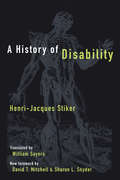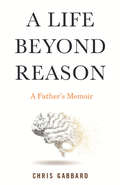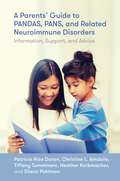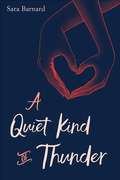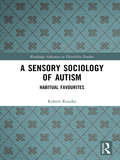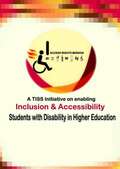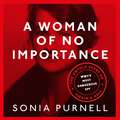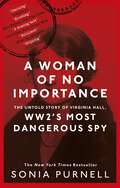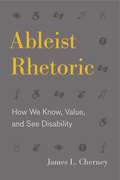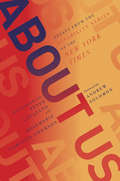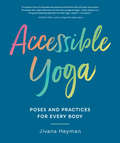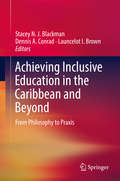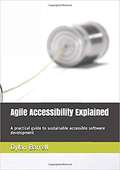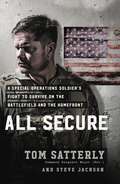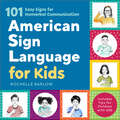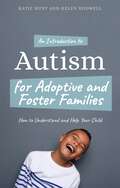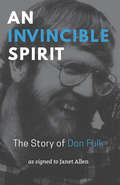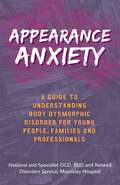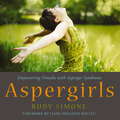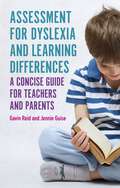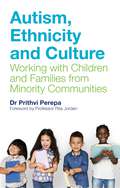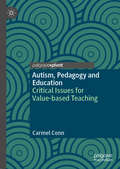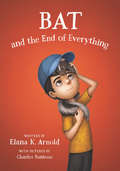- Table View
- List View
A History of Disability (Corporealities: Discourses Of Disability)
by Henri-Jacques StikerThe first book to attempt to provide a framework for analyzing disability through the ages, Henri-Jacques Stiker's now classic A History of Disability traces the history of western cultural responses to disability, from ancient times to the present. The sweep of the volume is broad; from a rereading and reinterpretation of the Oedipus myth to legislation regarding disability, Stiker proposes an analytical history that demonstrates how societies reveal themselves through their attitudes towards disability in unexpected ways. Through this history, Stiker examines a fundamental issue in contemporary Western discourse on disability: the cultural assumption that equality/sameness/similarity is always desired by those in society. He highlights the consequences of such a mindset, illustrating the intolerance of diversity and individualism that arises from placing such importance on equality. Working against this thinking, Stiker argues that difference is not only acceptable, but that it is desirable, and necessary. This new edition of the classic volume features a new foreword by David T. Mitchell and Sharon L. Snyder that assesses the impact of Stiker’s history on Disability Studies and beyond, twenty years after the book’s translation into English. The book will be of interest to scholars of disability, historians, social scientists, cultural anthropologists, and those who are intrigued by the role that culture plays in the development of language and thought surrounding people with disabilities.
A Life Beyond Reason: A Father's Memoir
by Chris GabbardAn unflinching and luminous memoir that explores a father's philosophical transformation when he must reconsider the questions what makes us human? and whose life is worth living?Before becoming a father, Chris Gabbard was a fast-track academic finishing his doctoral dissertation at Stanford. A disciple of Enlightenment thinkers, he was a devotee of reason, believed in the reliability of science, and lived by the dictum that an unexamined life is not worth living. That is, until his son August was born. Despite his faith that modern medicine would not fail him, August was born with a severe traumatic brain injury as a likely result of medical error and lived as a spastic quadriplegic who was cortically blind, profoundly cognitively impaired, and nonverbal. While Gabbard tried to uncover what went wrong during the birth and adjusted to his new role raising a child with multiple disabilities, he began to rethink his commitment to Enlightenment thinkers--who would have concluded that his son was doomed to a life of suffering. But August was a happy child who brought joy to just about everyone he met in his 14 years of life--and opened up Gabbard's capacity to love. Ultimately, he comes to understand that his son is undeniably a person deserving of life. A Life Beyond Reason will challenge readers to reexamine their beliefs about who is deserving of humanity.
A Parents’ Guide to PANDAS, PANS, and Related Neuroimmune Disorders: Information, Support, and Advice
by Patricia Rice Doran Diana Pohlman Christine Leininger Amabile Tiffany Tumminaro Heather Rain KorbmacherHaving a child who suddenly develops PANDAS (Pediatric Autoimmune Neuropsychiatric Disorders Associated with Strep), PANS (Pediatric Acute-onset Neuropsychiatric Syndrome) or related conditions such as encephalitis can be a daunting challenge for parents. This clear guide explains the symptoms and diagnosis of PANDAS and PANS, with treatment options and recommended strategies for supporting children at home, at school, and in community settings.The book covers key symptoms including OCD, tics, anxiety, sensory issues and personality changes, with practical advice on medical management, nutrition, lifestyle, and addressing social and behavioural needs. Each chapter also includes handy sidebars with key information to remember, and action steps for overcoming challenges, managing relapse, family self-care and providing children with the best possible support.
A Quiet Kind of Thunder
by Sara BarnardPerfect for fans of Morgan Matson and Jandy Nelson. A girl who can&’t speak and a boy who can&’t hear go on a journey of self-discovery and find support with each other in this gripping, emotionally resonant novel for &“readers who enjoyed John Green&’s Turtles All the Way Down&” (Booklist) from bestselling author Sara Barnard. Steffi doesn&’t talk, but she has so much to say. Rhys can&’t hear, but he can listen. Steffi has been a selective mute for most of her life. The condition&’s name has always felt ironic to her, because she certainly does not &“select&” not to speak. In fact, she would give anything to be able to speak as easily and often as everyone around her can. She suffers from crippling anxiety, and uncontrollably, in most situations simply can&’t open her mouth to get out the words. Steffi&’s been silent for so long that she feels completely invisible. But Rhys, the new boy at school, sees her. He&’s deaf, and her knowledge of basic sign language means that she&’s assigned to help him acclimate. To Rhys, it doesn&’t matter that Steffi doesn&’t talk. As they find ways to communicate, Steffi discovers that she does have a voice, and that she&’s falling in love with the one person who makes her feel brave enough to use it. But as she starts to overcome a lifelong challenge, she&’ll soon confront questions about the nature of her own identity and the very essence of what it is to know another person.
A Sensory Sociology of Autism: Habitual Favourites (Routledge Advances in Disability Studies)
by Robert RourkeThis innovative book places the sensory experiences of autistic individuals within a sociological framework. It instigates new discussions around sensory experience, autism and how disability and ability can be reconceived. Autism is commonly understood to involve social and communication difficulties. Less commented upon is the sensory challenges faced by those with autism. Sociology is no different, focusing on communication and neglecting the sensory dimensions of experience. Sensory experiences and relations are central to how we understand and navigate through the natural and social worlds, and mediate our interactions with other people, objects and spaces. In this book, the author explores how these processes are affected by the favourite activities of autistic people. With real-life case studies and cutting-edge research, this book will be useful to students, autistic people, advocates and carers, disability studies researchers and sociologies of disability and the senses.
A TISS Initiative on enabling Inclusion and Accessibility for Students with Disability in Higher Education
by Prof S. Parasuraman Dr. Vaishali KolheThe "I Access Rights Mission" (IARM) is an innovative initiative by Tata Institute of Social Sciences (TISS) and Centre for Disability Studies + Action (CDSA) to promote inclusion and accessibility for students with disabilities in higher education. By implementing a rights-based framework, involving stakeholders and utilizing international and national protocols, IARM aims to create an inclusive learning environment that addresses individual needs, eliminates barriers, and fosters mutual confidence. Through a cultural shift towards acceptance and diversity, IARM seeks to empower students with disabilities to become active participants in education and society, ensuring equal opportunities and rights for all.
A Woman of No Importance: The Untold Story of Virginia Hall, WWII's Most Dangerous Spy
by Sonia Purnell'A METICULOUS HISTORY THAT READS LIKE A THRILLER' BEN MACINTYRE, TEN BEST BOOKS TO READ ABOUT WORLD WAR II An astounding story of heroism, spycraft, resistance and personal triumph over shocking adversity. 'A rousing tale of derring-do' THE TIMES * 'Riveting' MICK HERRON * 'Superb' IRISH TIMES THE NEW YORK TIMES BESTSELLERIn September 1941, a young American woman strides up the steps of a hotel in Lyon, Vichy France. Her papers say she is a journalist. Her wooden leg is disguised by a determined gait and a distracting beauty. She is there to spark the resistance.By 1942 Virginia Hall was the Gestapo's most urgent target, having infiltrated Vichy command, trained civilians in guerrilla warfare and sprung soldiers from Nazi prison camps. The first woman to go undercover for British SOE, her intelligence changed the course of the war - but her fight was still not over. This is a spy history like no other, telling the story of the hunting accident that disabled her, the discrimination she fought and the secret life that helped her triumph over shocking adversity.'A cracking story about an extraordinarily brave woman' TELEGRAPH'Gripping ... superb ... a rounded portrait of a complicated, resourceful, determined and above all brave woman' IRISH TIMESWINNER of the PLUTARCH AWARD FOR BEST BIOGRAPHY
A Woman of No Importance: The Untold Story of Virginia Hall, WWII's Most Dangerous Spy
by Sonia Purnell'A METICULOUS HISTORY THAT READS LIKE A THRILLER' BEN MACINTYRE, TEN BEST BOOKS TO READ ABOUT WORLD WAR II An astounding story of heroism, spycraft, resistance and personal triumph over shocking adversity. 'A rousing tale of derring-do' THE TIMES * 'Riveting' MICK HERRON * 'Superb' IRISH TIMES THE NEW YORK TIMES BESTSELLERIn September 1941, a young American woman strides up the steps of a hotel in Lyon, Vichy France. Her papers say she is a journalist. Her wooden leg is disguised by a determined gait and a distracting beauty. She is there to spark the resistance.By 1942 Virginia Hall was the Gestapo's most urgent target, having infiltrated Vichy command, trained civilians in guerrilla warfare and sprung soldiers from Nazi prison camps. The first woman to go undercover for British SOE, her intelligence changed the course of the war - but her fight was still not over. This is a spy history like no other, telling the story of the hunting accident that disabled her, the discrimination she fought and the secret life that helped her triumph over shocking adversity.'A cracking story about an extraordinarily brave woman' TELEGRAPH'Gripping ... superb ... a rounded portrait of a complicated, resourceful, determined and above all brave woman' IRISH TIMESWINNER of the PLUTARCH AWARD FOR BEST BIOGRAPHY
Ableist Rhetoric: How We Know, Value, and See Disability (RSA Series in Transdisciplinary Rhetoric #11)
by James L. CherneyAbleism, a form of discrimination that elevates "able" bodies over those perceived as less capable, remains one of the most widespread areas of systematic and explicit discrimination in Western culture. Yet in contrast to the substantial body of scholarly work on racism, sexism, classism, and heterosexism, ableism remains undertheorized and underexposed. In this book, James L. Cherney takes a rhetorical approach to the study of ableism to reveal how it has worked its way into our everyday understanding of disability.Ableist Rhetoric argues that ableism is learned and transmitted through the ways we speak about those with disabilities. Through a series of textual case studies, Cherney identifies three rhetorical norms that help illustrate the widespread influence of ableist ideas in society. He explores the notion that "deviance is evil" by analyzing the possession narratives of Cotton Mather and the modern horror touchstone The Exorcist. He then considers whether "normal is natural" in Aristotle’s Generation of Animals and in the cultural debate over cochlear implants. Finally, he shows how the norm "body is able" operates in Alexander Graham Bell’s writings on eugenics and in the legal cases brought by disabled athletes Casey Martin and Oscar Pistorius. These three simple equivalencies play complex roles within the social institutions of religion, medicine, law, and sport. Cherney concludes by calling for a rhetorical model of disability, which, he argues, will provide a shift in orientation to challenge ableism’s epistemic, ideological, and visual components. Accessible and compelling, this groundbreaking book will appeal to scholars of both rhetoric and disability studies, as well as to disability rights advocates.
Ableist Rhetoric: How We Know, Value, and See Disability (RSA Series in Transdisciplinary Rhetoric)
by James L. CherneyAbleism, a form of discrimination that elevates “able” bodies over those perceived as less capable, remains one of the most widespread areas of systematic and explicit discrimination in Western culture. Yet in contrast to the substantial body of scholarly work on racism, sexism, classism, and heterosexism, ableism remains undertheorized and underexposed. In this book, James L. Cherney takes a rhetorical approach to the study of ableism to reveal how it has worked its way into our everyday understanding of disability.Ableist Rhetoric argues that ableism is learned and transmitted through the ways we speak about those with disabilities. Through a series of textual case studies, Cherney identifies three rhetorical norms that help illustrate the widespread influence of ableist ideas in society. He explores the notion that “deviance is evil” by analyzing the possession narratives of Cotton Mather and the modern horror touchstone The Exorcist. He then considers whether “normal is natural” in Aristotle’s Generation of Animals and in the cultural debate over cochlear implants. Finally, he shows how the norm “body is able” operates in Alexander Graham Bell’s writings on eugenics and in the legal cases brought by disabled athletes Casey Martin and Oscar Pistorius. These three simple equivalencies play complex roles within the social institutions of religion, medicine, law, and sport. Cherney concludes by calling for a rhetorical model of disability, which, he argues, will provide a shift in orientation to challenge ableism’s epistemic, ideological, and visual components. Accessible and compelling, this groundbreaking book will appeal to scholars of rhetoric and of disability studies as well as to disability rights advocates.
About Us: Essays From The New York Times' Disability Series
by Rosemarie Garland-Thomson Peter CatapanoBased on the pioneering New York Times series, About Us collects the personal essays and reflections that have transformed the national conversation around disability. <P><P> Boldly claiming a space in which people with disabilities can be seen and heard as they are—not as others perceive them—About Us captures the voices of a community that has for too long been stereotyped and misrepresented. Speaking not only to those with disabilities, but also to their families, coworkers and support networks, the authors in About Us offer intimate stories of how they navigate a world not built for them. Since its 2016 debut, the popular New York Times’ “Disability” column has transformed the national dialogue around disability. Now, echoing the refrain of the disability rights movement, “Nothing about us without us,” this landmark collection gathers the most powerful essays from the series that speak to the fullness of human experience—stories about first romance, childhood shame and isolation, segregation, professional ambition, child-bearing and parenting, aging and beyond. <P><P>Reflecting on the fraught conversations around disability—from the friend who says “I don’t think of you as disabled,” to the father who scolds his child with attention differences, “Stop it stop it stop it what is wrong with you?”—the stories here reveal the range of responses, and the variety of consequences, to being labeled as “disabled” by the broader public. <P><P>Here, a writer recounts her path through medical school as a wheelchair user—forging a unique bridge between patients with disabilities and their physicians. An acclaimed artist with spina bifida discusses her art practice as one that invites us to “stretch ourselves toward a world where all bodies are exquisite.” With these notes of triumph, these stories also offer honest portrayals of frustration over access to medical care, the burden of social stigma and the nearly constant need to self-advocate in the public realm. <P><P>In its final sections, About Us turns to the questions of love, family and joy to show how it is possible to revel in life as a person with disabilities. Subverting the pervasive belief that disability results in relentless suffering and isolation, a quadriplegic writer reveals how she rediscovered intimacy without touch, and a mother with a chronic illness shares what her condition has taught her young children. With a foreword by Andrew Solomon and introductory comments by co-editors Peter Catapano and Rosemarie Garland-Thomson, About Us is a landmark publication of the disability movement for readers of all backgrounds, forms and abilities. <P><P>Topics Include: Becoming Disabled • Mental Illness is not a Horror Show • Disability and the Right to Choose • Brain Injury and the Civil Right We Don’t Think • The Deaf Body in Public Space • The Everyday Anxiety of the Stutterer • I Use a Wheelchair. And Yes, I’m Your Doctor • A Symbol for “Nobody” That’s Really for Everybody • Flying While Blind • My $1,000 Anxiety Attack • A Girlfriend of My Own • The Three-Legged Dog Who Carried Me • Passing My Disability On to My Children • I Have Diabetes. Am I to Blame? • Learning to Sing Again • A Disabled Life is a Life Worth Living
Accessible Yoga: Poses and Practices for Every Body
by Jivana HeymanThis daring, visionary book revolutionizes yoga practice--and makes it truly accessible to everyone, in every body, at any age, and in any state of health.Yoga practice has so much to offer us physically, emotionally, mentally, and spiritually. But many of us feel discouraged to practice because we see young, slim, flexible, well, and able-bodied people dominating yoga spaces. Yet, yoga is truly a practice for all--conferring enormous benefits to our overall well-being as our bodies change, age, and navigate various health challenges. Jivana Heyman, founder of Accessible Yoga, views yoga as a basic human right--saying we all deserve to practice it in whatever state we find our body or mind. Accessible Yoga offers a simple, clear, and wonderfully adaptable practice for all people regardless of ability, health, and body type. Heyman has spent over twenty years sharing yoga with people of all abilities and backgrounds, and in this book, he shares his knowledge by breaking down complex yoga poses, breathing practices, meditation techniques, and yoga teachings into clearly understandable and practical tools we can use every day, regardless of our limitations or challenges.
Achieving Inclusive Education in the Caribbean and Beyond: From Philosophy to Praxis
by Dennis A. Conrad Launcelot I. Brown Stacey N. BlackmanThis book offers an international perspective of philosophical, conceptual and praxis-oriented issues that impinge on achieving education for all students. It sheds light on the historical, systemic, structural, organizational, and attitudinal barriers that continue to be antithetical to the philosophy and practice of inclusive education within the Caribbean. The first section of the book examines how globalized views of inclusion informed by philosophical ideas from the North have influenced and continue to influence the equity in education agenda in the region. The second section considers how exclusion and marginalization still occur across selected Caribbean islands. It provides both quantitative and qualitative data about the nature and experience of exclusion in selected Caribbean islands, the UK and USA. The third section tackles the practical realities of transforming education systems in the Caribbean for inclusion. In particular, it identifies teacher practices as the main site of interrogation that needs to be tackled if inclusion is to be successful. The fourth and final section examines the contribution of principals and exemplars to the development and advocacy for inclusive education. It discusses how educational leadership is understood, as well as the role of school principals in making inclusion a reality in schools, the challenges experienced and the qualities of education leaders.
Agile Accessibility Explained: A Practical Guide to Sustainable Accessible Software Development
by Dylan A. BarrellYears of experience down in the trenches of accessibility remediation projects, driven by lawsuits related to the Americans with Disabilities Act (ADA) or laws like the Accessibility for Ontarians with Disabilities Act (AODA) in Canada have given Mr. Barrell experience as to the practices that work when implementing sustainable accessible software development. He has collected these together in a very practical guide on how to do agile accessible development that goes from the design and usability phase all the way through to deployment. On the way it deals with continuous integration and delivery, issue tracking, testing and coding as well as the organizational practices required to support the individual agile teams. A must read for anyone who takes accessibility seriously.
All Secure: A Special Operations Soldier's Fight to Survive on the Battlefield and the Homefront
by Steve Jackson Tom SatterlyOne of the most highly regarded Tier One Delta Force operators in American military history shares his war stories and personal battle with PTSD.As a senior non-commissioned officer of Delta Force, the most elite and secretive special operations unit in the U.S. military, Command Sergeant Major Tom Satterly fought some of this country's most fearsome enemies. Over the course of twenty years and thousands of missions, he's fought desperately for his life, rescued hostages, killed and captured terrorist leaders, and seen his friends maimed and killed around him. All Secure is in part Tom's journey into a world so dark and dangerous that most Americans can't contemplate its existence. It recounts what it is like to be on the front lines with one of America's most highly trained warriors. As action-packed as any fiction thriller, All Secure is an insider's view of "The Unit." Tom is a legend even among other Tier One special operators. Yet the enemy that cost him three marriages, and ruined his health physically and psychologically, existed in his brain. It nearly led him to kill himself in 2014; but for the lifeline thrown to him by an extraordinary woman it might have ended there. Instead, they took on Satterly's most important mission-saving the lives of his brothers and sisters in arms who are killing themselves at a rate of more than twenty a day. Told through Satterly's firsthand experiences, it also weaves in the reasons-the bloodshed, the deaths, the intense moments of sheer terror, the survivor's guilt, depression, and substance abuse-for his career-long battle against the most insidious enemy of all: Post Traumatic Stress. With the help of his wife, he learned that by admitting his weaknesses and faults he sets an example for other combat veterans struggling to come home.
American Sign Language for Kids: 101 Easy Signs for Nonverbal Communication
by Rochelle BarlowThe easy way for kids ages 3 to 6 (and parents) to learn American Sign LanguageThere has never been a better way to start learning American Sign Language. Ideal for parents of nonverbal children or children with communication impairments in the preschool or kindergarten age range, American Sign Language for Kids offers a simple way to introduce both of you to ASL.Build your vocabularies with 101 signs perfect for everyday use, all featuring detailed illustrations, memory tips, and hands-on activities. American Sign Language for Kids helps you focus on the types of words you need most with chapters conveniently divided by category. Get chatty with activities that guide you through conversations. You'll be signing together in no time!American Sign Language for Kids includes:101 Helpful signs—From family and feelings to meals and playtime, work with your child to master subjects that will help the two of you connect.Fun ways to practice—Discover enjoyable activities at the end of each section that make it exciting and engaging to learn signs and start conversing!Practical guides—Get useful advice for introducing signs to a child with autism, helpful primers on deaf culture, and more.Discover an effective and meaningful way to deepen communication with your child—American Sign Language for Kids shows you the way.
An Introduction to Autism for Adoptive and Foster Families: How to Understand and Help Your Child
by Helen Rodwell Katie HuntWritten for busy foster carers and adoptive parents, this book provides a concise introduction to Autism Spectrum Disorder (ASD), and how to support a child with a diagnosis. It emphasises the common strengths children with ASD have, as well as offering strategies for any behavioural issues that are likely to arise, highlighting how these can be exacerbated by the care system and adoption process.The first part of the book looks at the different aspects of autism and the challenges it can pose for children and parents, providing strategies for managing difficulties at home and at school, using social stories, and reducing sensory input in a child's environment. The second part looks at issues that arise for fostered or adopted children, including placement transitions, contact, and explaining the past. It concludes with helping parents to think about self-care.
An Invincible Spirit: The Story of Don Fulk
by Janet Allen“Don taught us how to be a real independent living center. Nothing was easy; every issue that came up on the road to Don’s independence was a challenge and a struggle, but the experience pushed us and we learned from it. We were not going to let Don down; all of us were committed to Don’s freedom and independence.” —Kathleen Kleinman, Executive Director, TRPIL (Transitional Paths to Independent Living) Profoundly deafened as an infant, Don Fulk didn’t learn his name or go to school until the age of ten. When he was eighteen years old and a budding superstar on his football and basketball teams, he broke his neck in a swimming accident, and became paralyzed. After his injury, he was confined to a bed in his parents’ home for eight years, unable to move and barely able to communicate. After his family could no longer care for him, he spent nine years in a nursing home where he suffered from abuse and neglect. Yet through a life marred by isolation and frustration, Fulk endured with strength, humor, and grace. He never gave up pursuing his dreams for independence and self-worth, and improving the lives of others. He fought a system that was unfair and discriminatory, and helped pave the way for people with disabilities to live independently. Don Fulk signed his story to author Janet Allen, describing his difficult home life, the incredible friends who changed his life, and his dramatic escape from an abusive nursing home. An Invincible Spirit is a story of hope, empowerment, and the battles people with disabilities have fought—and continue to fight—to improve the quality of their lives.
An Invincible Spirit: The Story of Don Fulk
by Janet Allen“Don taught us how to be a real independent living center. Nothing was easy; every issue that came up on the road to Don’s independence was a challenge and a struggle, but the experience pushed us and we learned from it. We were not going to let Don down; all of us were committed to Don’s freedom and independence.” —Kathleen Kleinman, Executive Director, TRPIL (Transitional Paths to Independent Living) Profoundly deafened as an infant, Don Fulk didn’t learn his name or go to school until the age of ten. When he was eighteen years old and a budding superstar on his football and basketball teams, he broke his neck in a swimming accident, and became paralyzed. After his injury, he was confined to a bed in his parents’ home for eight years, unable to move and barely able to communicate. After his family could no longer care for him, he spent nine years in a nursing home where he suffered from abuse and neglect. Yet through a life marred by isolation and frustration, Fulk endured with strength, humor, and grace. He never gave up pursuing his dreams for independence and self-worth, and improving the lives of others. He fought a system that was unfair and discriminatory, and helped pave the way for people with disabilities to live independently. Don Fulk signed his story to author Janet Allen, describing his difficult home life, the incredible friends who changed his life, and his dramatic escape from an abusive nursing home. An Invincible Spirit is a story of hope, empowerment, and the battles people with disabilities have fought—and continue to fight—to improve the quality of their lives.
Appearance Anxiety: A Guide to Understanding Body Dysmorphic Disorder for Young People, Families and Professionals
by The National ServiceThe first book for teens that explains the causes and impact of body dysmorphic disorder (BDD). The book is interspersed with accounts and artwork from young people with BDD, along with perspectives of their families. BDD is a debilitating mental health disorder, and this book gives advice on treatment including CBT and medication, and shows where to get help.It increases awareness, provides solidarity for people with BDD, and alerts others to key signs and symptoms so they can prevent further suffering. It also includes a short section for families and professionals on what they can do to help, making this the go-to book for professionals and families to recommend to teens, as well an invaluable resource for young people themselves.
Aspergirls: Empowering Females with Asperger Syndrome
by Rudy SimoneAward winning handbook for girls and women on the autism spectrum, perceptive and wise reflections and advice . *Gold Medal Winner in the Sexuality / Relationships Category of the 2011 IPPY Awards** Honorary Mention in the 2010 BOTYA Awards Women's Issues Category *The award-winning handbook for girls and women on the autism spectrum, perceptive and wise reflections and advice.Girls with Asperger's Syndrome are less frequently diagnosed than boys, and even once symptoms have been recognised, help is often not readily available. The image of coping well presented by AS females of any age can often mask difficulties, deficits, challenges, and loneliness.This is a must-have handbook written by an Aspergirl for Aspergirls, young and old. Rudy Simone guides you through every aspect of both personal and professional life, from early recollections of blame, guilt, and savant skills, to friendships, romance and marriage. Employment, career, rituals and routines are also covered, along with depression, meltdowns and being misunderstood. Including the reflections of over thirty-five women diagnosed as on the spectrum, as well as some partners and parents, Rudy identifies recurring struggles and areas where Aspergirls need validation, information and advice. As they recount their stories, anecdotes, and wisdom, she highlights how differences between males and females on the spectrum are mostly a matter of perception, rejecting negative views of Aspergirls and empowering them to lead happy and fulfilled lives.This book will be essential reading for females of any age diagnosed with AS, and those who think they might be on the spectrum. It will also be of interest to partners and loved ones of Aspergirls, and anybody interested either professionally or academically in Asperger's Syndrome.(P)2019 Hodder & Stoughton Limited
Assessment for Dyslexia and Learning Differences: A Concise Guide for Teachers and Parents
by Gavin Reid Jennie GuiseFilling a hole in the market for an informative and user-friendly guide to the topic, this is a go-to guide for any parent or teacher.Positive, empowering and written to suit an international audience, this guide is essential reading for education professionals and parents of children with dyslexia and other learning differences. It includes practical strategies, useful websites and resources, as well as ways of recognising early on that your child or pupil has dyslexia. The authors, experienced dyslexia and learning differences consultants, highlight the importance of effective and positive communication between home and school, as well as with the child.Assessment for Dyslexia and Learning Differences is the perfect pocket guide for busy professionals and parents, who will be able to read it one sitting or alternatively dip in and out of it as they please.
Autism, Ethnicity and Culture: Working with Children and Families from Minority Communities
by Prithvi PerepaAutism affects all ethnicities, yet professionals do not always have the skills required to support the diverse needs of autistic young people and their families from different communities. As a result, families from these communities often experience issues in getting a diagnosis, access to educational and social care settings, appropriateness of social skills being taught to children, and misinterpretation of behaviour exhibited by these children, which can also lead to higher rates of exclusions. This innovative book provides professionals with knowledge about the issues faced and equips them with practical strategies to resolve them. Drawing on his extensive experience and research, Perepa combines a comprehensive overview of autism and minority ethnic communities with guidance on how best to support children and young people from these communities. An essential resource for professionals working in our increasingly multicultural society.
Autism, Pedagogy and Education: Critical Issues for Value-based Teaching
by Carmel ConnThis book discusses critical issues concerning autism and education, and what constitutes effective pedagogy for this group of learners. Autism is a high-profile area within the discipline of special education, and the issue of how to teach autistic learners remains a contested one: recent theorising has questioned a techno-rationalist approach that places the burden of change on the autistic pupil. The author explores the values that underpin educational approaches within existing pedagogical practice: while these approaches have their individual merits and shortcomings, this book introduces and expands upon a strengths-based approach. This book will appeal to students and scholars of autism and education, with particular regard to teaching autistic learners.
Bat and the End of Everything
by Elana K. ArnoldThe third book in the funny and joyful series Katherine Applegate has called “tender and important,” by National Book Award finalist Elana K. Arnold. Bixby Alexander Tam (nicknamed Bat) has been the caretaker for Thor, the best skunk kit in the world...but the last day of third grade is quickly approaching, and Thor is almost ready to be released into the wild.The end of school also means that Bat has to say good-bye to his favorite teacher, and he worries about the summer care of Babycakes, their adorable class pet. Not only that, but his best friend is leaving for a long vacation in Canada.Summer promises good things, too, like working with his mom at the vet clinic and hanging out with his sister, Janie. But Bat can’t help but feel that everything is coming to an end.National Book Award finalist Elana K. Arnold returns with the third story starring an unforgettable boy on the autism spectrum.
